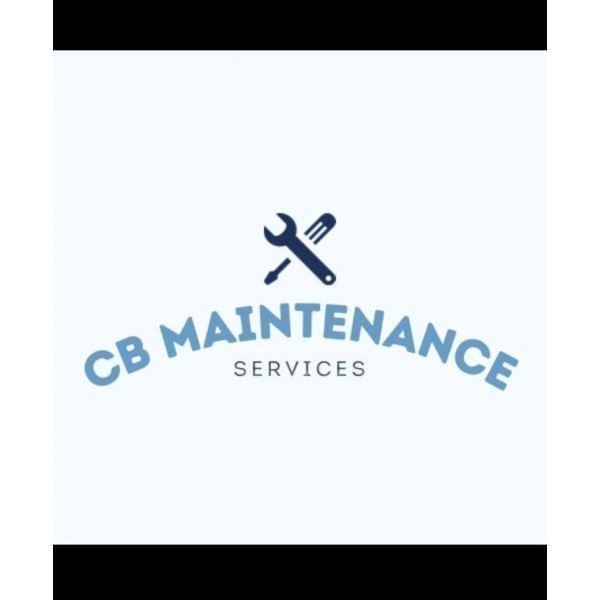Loft Conversions in Wath Upon Dearne
MS Moore Properties Ltd is a premier choice for all your building and renovation needs in North Anston... read more »
Tailored Contractors Ltd: Your Trusted Tradespeople in Featherstone, West Yorkshire
Discover the exceptional servi... read more »
Welcome to LW Roofing Building Ltd, your trusted partner for all roofing and building needs in Grove Town and across West Yorkshire. As a... read more »
Welcome to CB Maintenance Services, your premier choice for tradespeople services in Sharrow and throughout Sout... read more »
Sanderson Building & Landscaping: Your Trusted Tradespeople in Littleworth, South Yorkshire
Welcome to Sanderson... read more »
Everlast Construction: Premier Tradespeople in Killamarsh, Derbyshire
Welcome to Everlast Construction, your tru... read more »
Welcome to U.K Swift Group Limited, your go-to experts for all things construction in Hyde Park and throughout South Yorkshire. As a prem... read more »
Icon Pro-Renovations Ltd. is your trusted partner for all building and renovation needs in Brierley, South Yorkshire. As... read more »
Welcome to Westwood Joinery And Construction Ltd, your trusted partner for all construction and renovation needs in Mortomley and through... read more »
Welcome to Lomond Conversions, your trusted partner for all building needs in Smithies and the wider South Yorkshire area. Specialising i... read more »
First Choice Construction Northern Ltdread more »
KD Windows Ltd is a reputable Doncas... read more »
JC Property Repairs Ltd is your go-t... read more »
Welcome to Teps Building Services, your premier choic... read more »
AA Building Solutions is a reputable... read more »
Welcome to Projex Construction Ltd, your trusted part... read more »
Welcome to Micklethwaite & Ward Ltd, your premier cho... read more »
Welcome to Advance Building Services Ltd, your leadin... read more »
Search Loft Conversions in places nearby
Introduction to Loft Conversions in Wath Upon Dearne
Loft conversions have become a popular choice for homeowners in Wath Upon Dearne looking to maximise their living space without the hassle of moving. This charming town in South Yorkshire offers a unique blend of history and modernity, making it an ideal location for enhancing your home. Whether you're seeking an extra bedroom, a home office, or a playroom, a loft conversion can provide the perfect solution. Let's explore the ins and outs of loft conversions in Wath Upon Dearne, from planning to execution, and discover how this transformation can add value and comfort to your home.
The Benefits of Loft Conversions
Loft conversions offer numerous advantages, making them an attractive option for homeowners. Firstly, they increase the usable space in your home, providing a cost-effective alternative to moving. This additional space can be tailored to suit your needs, whether it's a new bedroom, a study, or a creative studio. Moreover, a well-executed loft conversion can significantly boost your property's value, offering a high return on investment.
Another benefit is the potential for improved energy efficiency. By upgrading insulation and installing energy-efficient windows, you can reduce your home's energy consumption. Additionally, loft conversions often allow for more natural light, creating a brighter and more inviting space.
Types of Loft Conversions
There are several types of loft conversions to consider, each with its own set of benefits and requirements. The most common types include:
- Velux Loft Conversion: This type involves installing Velux windows into the existing roofline, making it the most straightforward and cost-effective option. It's ideal for lofts with sufficient headroom.
- Dormer Loft Conversion: A dormer conversion extends the existing roof, creating additional floor space and headroom. It's a versatile option suitable for most homes.
- Mansard Loft Conversion: This involves altering the roof structure to create a flat roof with a slight slope. It's a more complex and costly option but offers substantial additional space.
- Hip to Gable Loft Conversion: Suitable for semi-detached or detached houses, this conversion involves extending the hip roof to create a vertical gable wall, increasing the internal space.
Planning Permission and Building Regulations
Before embarking on a loft conversion in Wath Upon Dearne, it's essential to understand the planning permission and building regulations requirements. Generally, loft conversions fall under permitted development rights, meaning you won't need planning permission if the work meets specific criteria. However, if your property is in a conservation area or if the conversion involves significant structural changes, you may need to apply for planning permission.
Building regulations approval is mandatory for all loft conversions to ensure the work meets safety and structural standards. This includes aspects such as fire safety, insulation, and structural integrity. It's advisable to consult with a professional architect or builder to navigate these requirements effectively.
Choosing the Right Professionals
Selecting the right professionals is crucial to the success of your loft conversion project. Look for experienced architects and builders with a proven track record in loft conversions. Check for relevant accreditations and memberships in professional bodies, such as the Federation of Master Builders (FMB) or the Royal Institute of British Architects (RIBA).
It's also important to obtain multiple quotes and references from previous clients to ensure you're getting the best value for your investment. A reputable professional will provide a detailed plan and timeline for the project, ensuring transparency and accountability throughout the process.
Design Considerations for Loft Conversions
Designing your loft conversion involves several key considerations to ensure the space is functional and aesthetically pleasing. Start by assessing the available space and determining how it can best meet your needs. Consider factors such as headroom, natural light, and access when planning the layout.
Incorporating skylights or dormer windows can enhance natural light, creating a bright and airy atmosphere. Additionally, choosing the right colour scheme and furnishings can make the space feel more spacious and inviting. Don't forget to consider storage solutions, as lofts often have awkward angles and limited space.
Maximising Space and Functionality
To make the most of your loft conversion, focus on maximising space and functionality. Built-in storage solutions, such as fitted wardrobes or shelving, can help utilise every inch of space effectively. Consider multi-functional furniture, like sofa beds or foldable desks, to enhance versatility.
It's also important to plan for adequate lighting and ventilation. Incorporating a mix of ambient, task, and accent lighting can create a balanced and comfortable environment. Proper ventilation is crucial to prevent condensation and maintain air quality, so consider installing extractor fans or opening windows.
Cost Considerations and Budgeting
The cost of a loft conversion in Wath Upon Dearne can vary significantly depending on the type of conversion, the size of the space, and the materials used. On average, a basic loft conversion can cost between £20,000 and £40,000, while more complex projects can exceed £50,000.
When budgeting for your loft conversion, consider factors such as design fees, planning permission, building regulations, and construction costs. It's also wise to set aside a contingency fund for unexpected expenses. Obtaining multiple quotes from reputable builders can help you find the best value for your investment.
Financing Your Loft Conversion
There are several financing options available for loft conversions, including personal loans, remortgaging, or using savings. It's important to assess your financial situation and choose the option that best suits your needs. Consulting with a financial advisor can provide valuable insights and help you make an informed decision.
Timeline and Project Management
Managing the timeline of your loft conversion project is crucial to ensure it stays on track and within budget. A typical loft conversion can take between 6 to 12 weeks to complete, depending on the complexity of the project. It's important to work closely with your builder to establish a realistic timeline and address any potential delays promptly.
Effective project management involves regular communication with your builder and other professionals involved in the project. Scheduling regular site visits and progress meetings can help ensure the work is progressing as planned and any issues are addressed promptly.
Dealing with Challenges and Delays
Challenges and delays are common in construction projects, but they can be managed effectively with proper planning and communication. Common challenges include weather-related delays, unexpected structural issues, or supply chain disruptions. Having a contingency plan in place and maintaining open communication with your builder can help mitigate these challenges and keep the project on track.
Legal and Safety Considerations
Ensuring your loft conversion complies with legal and safety standards is paramount. This includes obtaining the necessary building regulations approval and ensuring the work meets fire safety and structural requirements. It's also important to consider the impact of the conversion on your neighbours and address any potential concerns proactively.
Working with experienced professionals who are familiar with local regulations can help ensure your project meets all legal and safety requirements. Additionally, obtaining the necessary insurance coverage can protect you from potential liabilities during the construction process.
Fire Safety and Structural Integrity
Fire safety is a critical consideration in loft conversions, as the additional space must provide a safe means of escape in the event of a fire. This may involve installing fire-resistant doors, smoke alarms, and ensuring adequate escape routes. Structural integrity is also crucial, as the conversion must support the additional weight and meet building standards.
Environmental Impact and Sustainability
Incorporating sustainable practices into your loft conversion can reduce its environmental impact and enhance energy efficiency. This includes using eco-friendly materials, improving insulation, and installing energy-efficient windows and lighting. Additionally, consider incorporating renewable energy sources, such as solar panels, to further reduce your carbon footprint.
Working with professionals who prioritise sustainability can help you make informed decisions and create a more environmentally friendly space. Additionally, incorporating sustainable practices can enhance the long-term value and appeal of your property.
Insulation and Energy Efficiency
Proper insulation is essential for maintaining a comfortable temperature in your loft conversion and reducing energy consumption. Consider using high-quality insulation materials, such as sheep's wool or recycled cellulose, to enhance thermal performance. Additionally, installing energy-efficient windows and lighting can further improve energy efficiency and reduce utility costs.
Case Studies and Success Stories
Exploring case studies and success stories can provide valuable insights and inspiration for your loft conversion project. Many homeowners in Wath Upon Dearne have successfully transformed their lofts into functional and stylish spaces, enhancing their homes' value and comfort.
For example, one family converted their loft into a spacious master bedroom with an en-suite bathroom, creating a private retreat within their home. Another homeowner transformed their loft into a bright and airy home office, providing a dedicated workspace for remote work. These success stories demonstrate the potential of loft conversions to enhance your living space and meet your unique needs.
Lessons Learned and Best Practices
Learning from others' experiences can help you avoid common pitfalls and ensure a successful loft conversion. Key lessons include the importance of thorough planning, selecting the right professionals, and maintaining open communication throughout the project. Additionally, prioritising quality materials and craftsmanship can enhance the longevity and appeal of your conversion.
Frequently Asked Questions
- Do I need planning permission for a loft conversion in Wath Upon Dearne? Generally, loft conversions fall under permitted development rights, but you may need planning permission if your property is in a conservation area or involves significant structural changes.
- How long does a loft conversion take? A typical loft conversion can take between 6 to 12 weeks, depending on the complexity of the project.
- What is the cost of a loft conversion? The cost can vary significantly, with basic conversions ranging from £20,000 to £40,000, and more complex projects exceeding £50,000.
- Can a loft conversion add value to my home? Yes, a well-executed loft conversion can significantly increase your property's value and provide a high return on investment.
- What types of loft conversions are available? Common types include Velux, dormer, mansard, and hip to gable conversions, each with its own benefits and requirements.
- How can I ensure my loft conversion is energy efficient? Incorporate high-quality insulation, energy-efficient windows, and sustainable materials to enhance energy efficiency and reduce environmental impact.
Loft conversions in Wath Upon Dearne offer a fantastic opportunity to enhance your living space and add value to your home. By understanding the process, selecting the right professionals, and prioritising quality and sustainability, you can create a functional and stylish space that meets your unique needs. Whether you're looking for inspiration or practical advice, this guide provides a comprehensive overview of loft conversions, helping you make informed decisions and achieve your dream home transformation.
Send a message

















